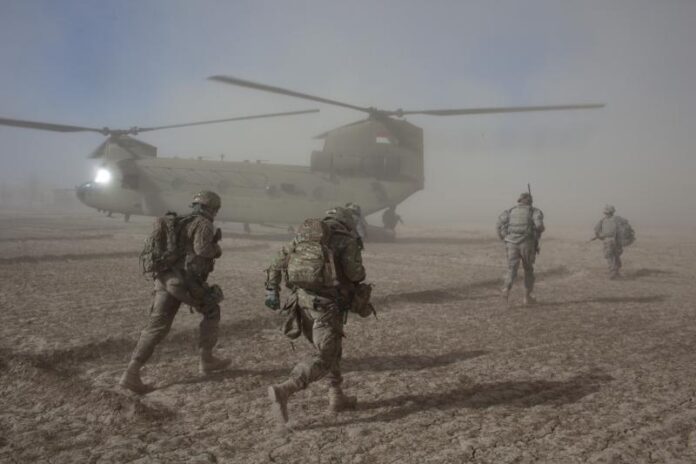When you’re wounded and left on Afghanistan’s plains,
and the women come out to cut up what remains,
jest roll to your rifle and blow out your brains
and go to your gawd like a soldier.-Rudyard Kipling
The War of the people of Afghanistan against US imperialist occupation is drawing to a close. Afghanistan has once again lived upto its reputation of being a graveyard of empires, especially of empires running amuck. US imperialism is not able to carry on its military occupation due to increasingly high economic and military costs and primarily due to these, dwindling domestic support for this imperialist war.

Moreover, increasing challenges faced by US imperialists to their domination in different parts of the world have made the continuation of this war an impossibility for them. Trump concluded and Biden executed an agreement with the Taliban to withdraw their military force from Afghanistan. Trump had put May 1, 2021, as the deadline for withdrawal in exchange for Taliban’s commitment to not host groups like Al Qaeda and not to allow its territory for attacks against the USA.
Imperialist Agenda Behind US’s Military Adventurism
Every defeat has its own historical and political setting, to paraphrase Tolstoy, every defeat is a defeat in its own way, but they all share one thing in common – a deafening silence on the part of the defeated. So when the US vacated its ill-famed military base near capital Kabul, Baghram, in the hours past midnight in eerie silence and without even informing their so-called hosts, the message of defeat was loud and clear. Planes went flying away after midnight. The drivers & translators with their families are being flown abroad for their ultimate settlement in the USA, their number is estimated to be above 50,000. This resembles the last days of the US’s military adventure in Vietnam.
The US militarily occupied Afghanistan from the Taliban and with their withdrawal, the Taliban are coming back. It is not surprising that the Taliban’s return to power is synchronous with the withdrawal of US troops. The US did not come to Afghanistan for any so-called nation-building but for colonial occupation of this strategic center of Asia, the continent which is emerging as the main arena of unfolding contradictions among imperialist powers. In pursuit of this, US imperialism did not help nor empower Afghan people but imposed its colonial rule over Afghan people. What a foolhardy task by ignoramuses! One will recall that this nation builder (George Bush) could not even locate several countries on the world map when he was contesting for Presidency.
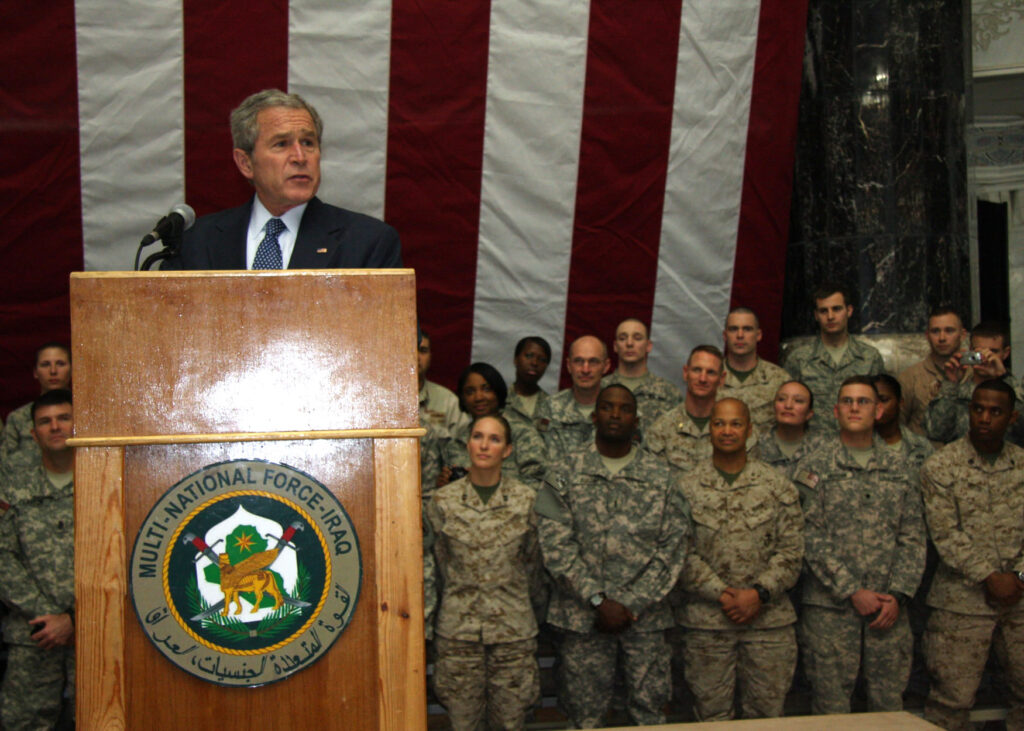
Drunk with power in that period of unipolar world ushered in by the collapse of the then Soviet Union and inaugurated by the first Gulf War in 1991, this trio of Bush, Cheney, and Rumsfield embarked on a journey which could not have ended otherwise. Even after over 2500 deaths of US citizens and tens of thousands have suffered debilitating injuries, with additional over 1200 deaths from among allies who had traveled far to fight what they called ‘global terrorism’, many more deaths of the privates helping the military occupation and nearly 1.5 trillion dollars spent on this occupation (many commentators put the cost at 3 trillion dollars), the result has been a defeat foretold.
It should also be recalled that the military occupation was in pursuance of securing the world hegemony of US imperialism. It had nothing to do with the 9/11 attacks as it was made out to be. All the accused of those attacks were from Saudi Arabia; Afghanistan did not have any aircraft to even train them and moreover, the Taliban had offered trials of Al Qaeda leaders in third countries. All these facts, and then growing conflict between US companies and the then Taliban Govt. over the supply lines for Caspian oil was already there and threats of US invasion were publicly made even prior to 9/11. The invasion was an act of a hegemonic power in a unipolar world to prevent challenges to its hegemony.
US military occupation was highly unpopular among Afghans who conducted a war of attrition, of the will more than that of soldiers, led by Taliban who dispersed among the people assessing difficulty in confronting a so much superior enemy; resorting to history tested guerilla warfare which suited their terrain and fitted in with the pattern of the asymmetric war that they were forced to fight.
Read More: The false promise of protection to non-Muslim refugees from Afghanistan
Though the US forced the then military dictator of Pakistan, Parvez Musharraf, to be part of this US-led war against Afghanistan, Musharraf’s act was highly unpopular among Pakistanis, both common people and elites.
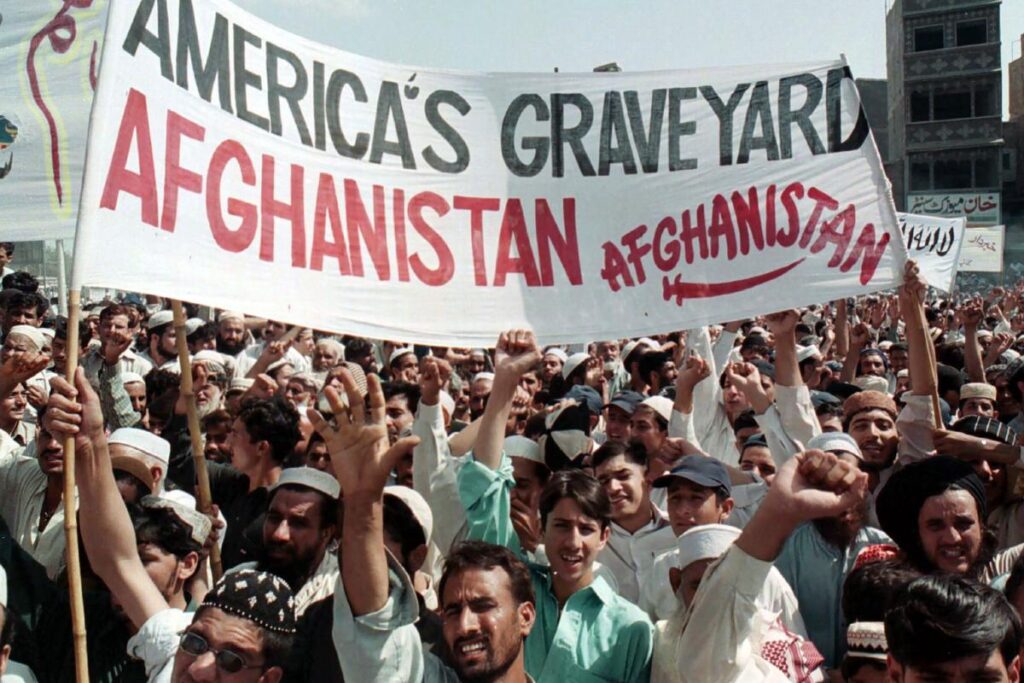
Image: Reuters
Pakistan faced attacks by Tehreek-e-Taliban of Pakistan drawn from Pashtuns. The population of Pashtuns, the dominant ethnic group in Afghanistan, is far more in Pakistan than in Afghanistan. This is historically due to the annexation of their plain land by the British colonial empire. Pashtuns are the second largest group in the Pakistan military. Musharraf’s plunging Pakistan into a US-led war created wide unrest in that country.
Even the neighbouring powers, like China and Russia, did not countenance US military presence on their borders. Though Russia does not share borders with Afghanistan it has close ties with Central Asian Republics which share long borders with Afghanistan. The ties are also through CSTO, a military alliance. With war grinding to daily assaults on foreign troops and mounting casualties among them, US rulers were face to face with the grim reality of colonial conquest of a land that has defied conquerors down the ages.
Return of Taliban to Power in Afghanistan
Then came the emphasis on Afghanization of war i.e. recruiting Afghans to fight Taliban and military experts came from the US and other occupiers and even countries like India to train the military forces of the Afghanistan Govt. installed and sustained by America. But as is a popular saying – you can hire an Afghan but not enslave him– this was a doomed exercise.
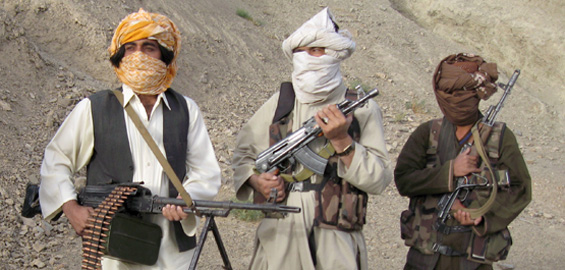
As US forces are withdrawing from Afghanistan, the Taliban is coming back to power. Taliban spokesperson claimed on July 9, 2021, that 85% of Afghanistan is under their control. While Kabul Govt. has refuted this claim, several western media outlets have reported that the Taliban exercise complete control over 195 of the 421 districts in Afghanistan, and further 129 districts are being contested between Taliban and Kabul Govt.
Even the warlords supporting Kabul Govt. are talking of raising their own militia to fight the Taliban, expressing a total lack of confidence in Kabul Govt. forces. Kabul Govt. forces are fleeing, deserting, and surrendering before the Taliban. Over 1600 of them crossed over to Tajikistan over just two days, leaving their border posts. Kabul Govt. forces were hired by Americans, and with the hirer deserting, hiring has come to an end.
Taliban is pursuing a strategy of capturing vast countryside and surrounding the main urban centers to make those controlling these centers surrender due to dwindling supplies due to the siege and the prospect of imminent military assault. Besides, the Taliban is capturing the borders with foreign countries thereby preventing any scope of foreign interference in support of anti-Taliban forces.
Almost the entire border with Tajikistan and Iran has come under the control of the Taliban. Important areas of the border with Pakistan, Uzbekistan, and Turkmenistan are also controlled by the Taliban. These, besides the vast resource-rich areas of Afghanistan, have come under the control of the Taliban thereby increasing its financial muscle and weakening Kabul Govt.
Implications for the Neighbouring Nations
The reality of the Taliban coming to power has been acknowledged by almost all the Govts. US military occupiers admitted it when they agreed to withdraw only on Taliban’s guarantees and concluded an agreement with them without involving Kabul Govt. Russia and China are asking them to honour international borders and not permit excursions into neighbouring countries or harbor opposition from neighbouring regions like Sinkiang in China.
India too has opened a discussion with the Taliban and a recent meeting between representatives of the Indian Govt. and the Taliban was held in Doha (Qatar). Moreover, the withdrawal of staff from different city centers by countries also points to their perception of the Taliban coming to power in near future.
Some Govts. like Indian Govt., are talking of preserving the gains made under the colonial rule like ‘democracy’. Everybody knows that Hamid Karzai, who ruled from 2001 to 2014, was imposed as President of Afghanistan by America. Even in the last presidential elections, ballot papers could not reach more than one-third of the areas; there was abysmally low polling even where booths could open and Ashraf Ghani was elected with just under a million votes in a country with a population of 38 million. These votes too were called fraudulent by the opposition. Kabul Govt. represented the will of the occupying imperialist powers and not of the people of Afghanistan.
The advent of the Taliban to power is almost certain, this will have an important bearing for Afghanistan and also for the entire region. Obviously, it will increase the importance of Pakistan for the western imperialist powers especially the USA, for their influence in the region. This not only in the immediate context of managing the withdrawal of US forces but also in the long term for the influence in Afghanistan and Central Asia.
Withdrawal of US forces will also be advantageous to Iran. Iran has recently hosted a meeting of the representatives of the Taliban and of Kabul Govt. Iran shares a long border with Afghanistan and in the border region and western part of Afghanistan, the population of Shia Hazaras is concentrated. So Iran has a vital stake in a stable and peaceful Afghanistan.
With defeat in Afghanistan, US strategy for Central Asia and for Caspian Sea oil has suffered a setback. The US will be forced to find an alternative route for that. One that is shaping up is through Turkey with its increasing influence in Azerbaijan, a Caspian Sea country. Turkey has also offered to station troops to secure Kabul Airport though the Taliban has demanded the withdrawal of all foreign forces.
Taliban Govt. will present a new situation for regionally dominant powers- China and Russia. They had developed friendly relations with the Taliban. In fact, Russia had invited the Taliban to the Moscow meeting in Afghanistan even before direct negotiations between the Taliban and US Admn. started. It will be advantageous for the Shanghai Cooperation Organization (SCO), consisting of China, Russia, and Central Asian Republics, that US forces are out of Afghanistan.
India’s Reactions to the New Development
Closer home, US Govt. directly and through its allies have put pressure on the Indian Govt. to improve relations with Pakistan. The role of the United Arab Emirates (UAE) in India and Pakistan’s announcement on February 25, 2021, that they will honour the cease-fire agreement of 2003, is well documented. It is also reported that there was an agreement to normalize the situation in Jammu & Kashmir at that time. US Administration has also advocated discussion between the Indian Govt. and leaders from J&K with US Assistant Secretary of State calling for it on June 7. Talks that Modi and his Govt. held with 14 leaders of J&K are being seen in this context of geopolitical changes.
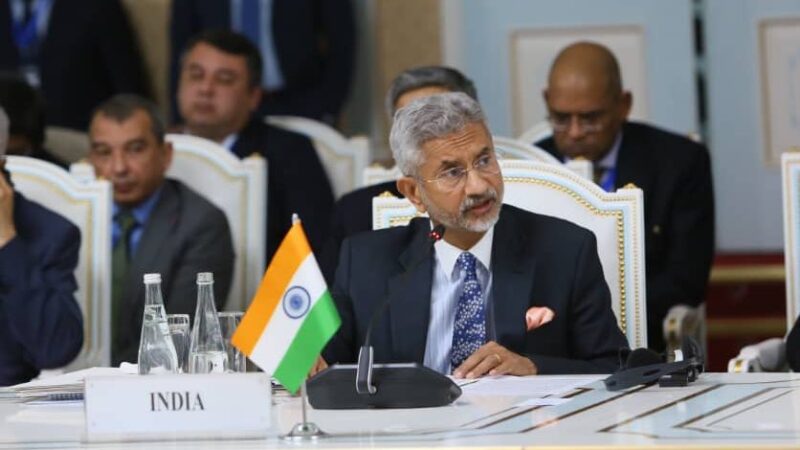
Indian Govt. has been slow to grasp these changes, having tied itself closely to white supremacist Donald Trump. Indian Govt. had been earlier ruling out any talks with Taliban seeing in their victory only Pakistan gaining strategic depth. They have failed to consider the Afghan people’s struggle against foreign occupation. In fact, the Indian Govt. has been opposing the withdrawal of US forces from Afghanistan. Even after being forced to talk to the Taliban due to a change in US policy, they are talking in a vein opposing the Taliban coming to power in Afghanistan.
Indian Foreign Minister, S. Jaishankar, in a recent visit to Moscow said in a joint press conference with his Russian counterpart, “…. Afghanistan is a very different case because for more than 30 years there have been international conferences … to discuss how to stabilize and bring peace to Afghanistan because it has proven implications for regional security and stability … we stress that there has to be a reduction in violence.” Their last wish i.e. reduction in violence, is soon going to fructify as Kabul Govt. forces will not be in a position to put up a fight for very long.
This war in Afghanistan which started with the US invasion of Afghanistan in October 2001, is soon coming to an end. The whole talk of civil war is being done by the forces who acquiesced in the US invasion of Afghanistan, killing of civilians there to the tune of over a hundred thousand and enslaving of Afghanistan, which they thought was in the interest of “regional security and stability.”
Not only supporting invasion and occupation of Afghanistan, the Indian Govt., especially after coming to power of RSS-BJP, in fact, soured India’s relations with Iran, jeopardized Indian involvement in the development of Chabahar port in Iran, and stopped the import of Iranian oil. Chabahar port was earlier seen by Indian rulers as an alternative route to Afghanistan and Central Asia. Further India became an open partner and advocate of Quad – the grouping of USA, Japan, Australia, and India- becoming a strategic alliance.
This is being perceived as Asian NATO and has been opposed by not only China but also Russia. Through these policies, there has emerged a trust deficit between the Indian Govt. and Russia. Russia has started developing relations with Pakistan and conducted even joint military exercises with Pakistan for the first time. All these developments in the region are products of short-sighted policies pursued by the Indian Govt. With these geopolitical changes, there will be difficulties in India increasing its involvement in Quad, especially in its development as a military alliance. RSS-BJP Govt., which had put its all eggs in one basket, is in a quandary.
With changing dynamics of intensifying inter-imperialist contradictions, the ruling RSS-BJP fascists are facing a situation where they are being made to talk with Pakistan and strategic equations in the region are not permitting taking their conflict with China to a higher level, thereby weakening their jingoist platform.
Indian ruling classes have been pursuing policies subservient to US imperialism in relation to Afghanistan, going against the legacy of our movement for freedom from colonial rule and even the interests of our country. When America launched its war of occupation in 2001 against Afghanistan Indian ruling class parties broadly supported this. Only revolutionary forces openly opposed this. CPI(ML)-New Democracy had organized a big protest with nearly 20,000 people marching from Ramlila Maidan to Jantar Mantar on October 29, 2001, opposing the US invasion of Afghanistan.
Movements for progressive changes in Afghanistan have to mainly come from within
The return of the Taliban to power may also witness some differences from its earlier rule. They too cannot erase everything of the recent past. Taliban is definitely a socially reactionary force particularly opposed to the rights of women. But this cannot and should not be used to justify the colonization of Afghanistan. Movements for progressive changes in society have to mainly come from within; external forces can play a supportive role.
It is in fact the imperialist powers who have created conditions for the strengthening of such reactionary forces, even directly aiding them. One can only recall how the progressive forces in Afghanistan were targeted by imperialists, social imperialists, and reactionaries of Afghanistan in the eighth and ninth decades of the last century. Progressive forces in Afghanistan should not rely on imperialist powers who mouth these progressive phrases for their colonial interests. They should rely on the people of their country and chalk out their strategy and tasks basing mainly on the concrete conditions of their country.
The article is a statement from CPI-ML(New Democracy)


